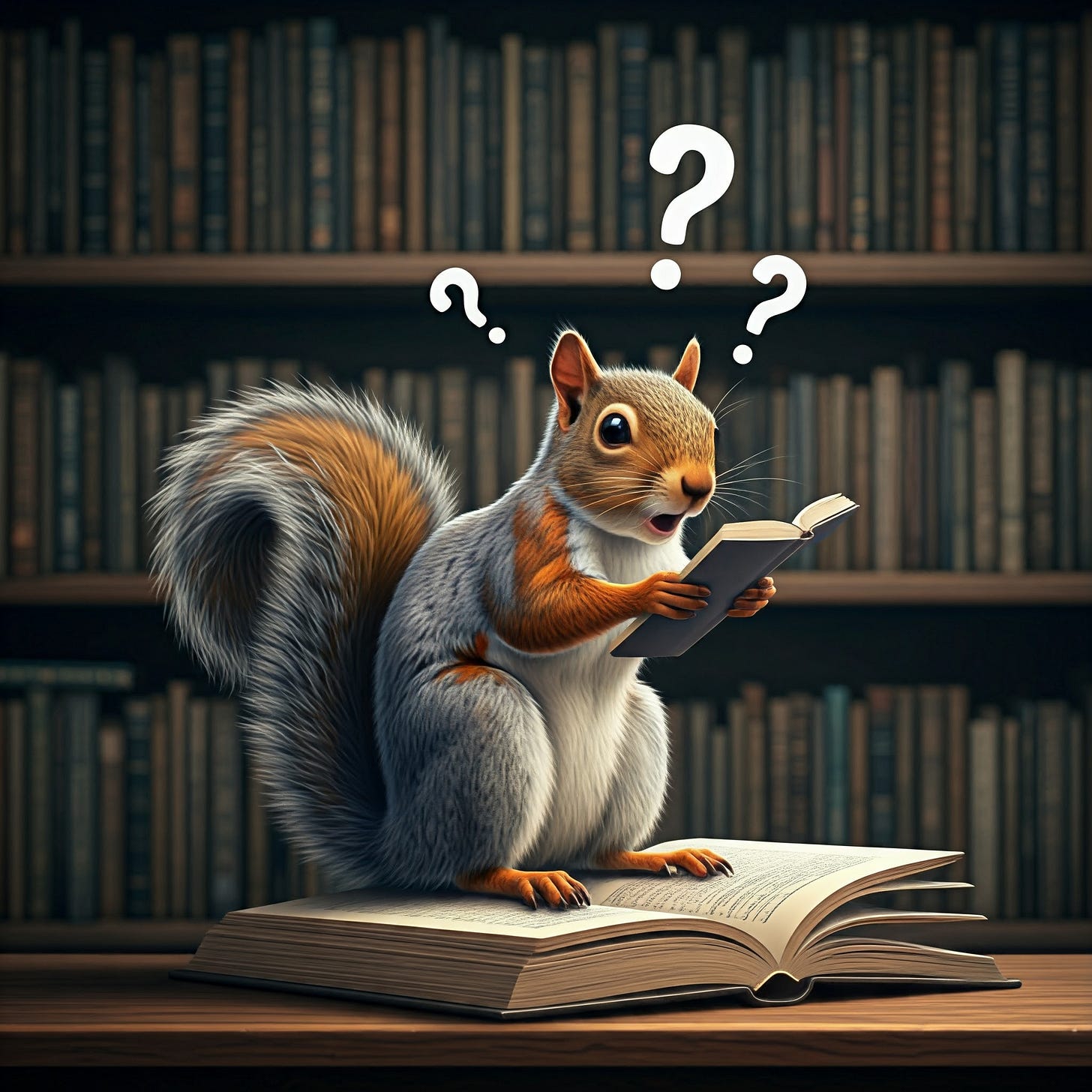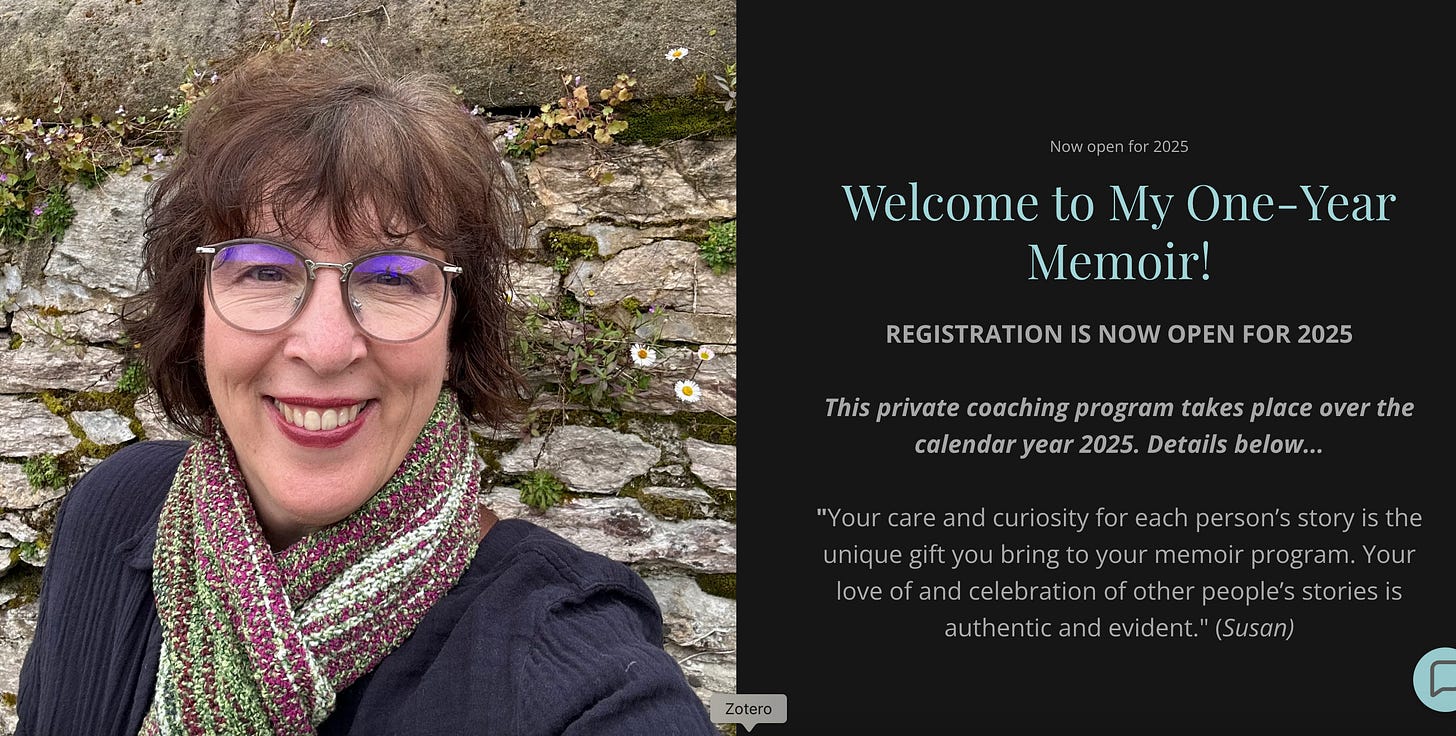Are you dreaming of writing your story? Is this your year? If YOU are ready to take that next step, and need that extra boost of teaching, coaching, accountability, and community to get your story written, I can help. More info below. Now, for hooks 101!
Memoir: The power of hooks (and why you need them)
"The trick to getting people to pay attention to important ideas is to be a good storyteller. No one ever made a decision because of a number. They need a story." —Malcolm Gladwell
In memoir, personal story, or narratives, we’re told we need a strong hook. But a hook is hard to define. Nevertheless, I will try! Ask questions in the comments on any of this, okay?
From the perspective of a reader, the power of a hook comes from . . .
an unfinished story
a question that hasn’t yet been answered
a cultural conversation that is drawing many voices
I love Malcolm Gladwell’s quote above, but he didn’t quite get it right. Look for the caps in the revised quote:
The trick to getting people to pay attention to important ideas is to be a good storyteller. No one ever made a decision because of a number. They need an UNFINISHED story. (Malcolm Gladwell, with an assist, ha!)
As nonfiction writers, why worry about hooks? In our distracted world, the ability to hook a reader isn't just helpful—it's essential. Whether you're writing fiction, memoir, or nonfiction, you have seconds to capture a reader's attention.
In the publishing industry, this translates to roughly three paragraphs to hook an agent, and often just one paragraph to hook a reader browsing in a bookstore or online.
What Makes a Powerful Hook?
A hook is like a blind date with a reader (or an agent or editor)—it's the technique of crafting a promise or a promise to your reader about the journey they're about to undertake.
A powerful hook in your actual writing must:
Generate immediate (and hopefully intense) curiosity
Create questions in the reader's mind
Establish clear stakes
Showcase your unique voice
A strong hook in your query, proposal, or marketing must:
Generate immediate (and hopefully intense) curiosity
Create questions in the reader's mind
Tap into an ongoing cultural conversation.
TIP: If no one is out there talking, or writing, about your themes and topics, you need to ask yourself this question: “Is there an audience for this book or article?”
ANOTHER TIP: This means you need to be out there in the greater community reading, listening, and engaging in these cultural conversations.
The best hooks operate on multiple levels. They're not just clever opening lines; they're the foundation of your entire story or article or book, and the queries, proposals, and marketing you’ll be doing.
Effective Hooks
Let's break down the three most effective types of hooks in stories:
Action-Based Hooks
These hooks throw readers directly into the middle of a scene—what the literary world calls in medias res. For example, instead of opening with your protagonist's morning routine, you might start with:
"The second bullet missed Sarah's head by three inches, embedding itself in her mother's antique mirror."
This immediately raises questions: Who's shooting? Why? What led to this moment? Readers can't help but want answers.
Emotional Hooks
These hooks tap into universal human experiences and emotions. They create immediate empathy and connection. Consider this opening:
"The day I learned my daughter had been exchanging letters with my dead sister was also the day I stopped believing in coincidences."
This hook works because it combines emotional weight with intrigue. It hints at both personal drama and possibly supernatural elements.
Statement Hooks
These are bold declarations that challenge conventional wisdom or present surprising facts. Think of Jane Austen's famous opening to Pride and Prejudice. A modern example might be:
"Marriage counselors are wrong about the fifty percent divorce rate—the real numbers are far more terrifying."
Marketing Hooks for Agents & Editors
When pitching to agents, your hook needs to work even harder. It needs to demonstrate:
Market awareness
Unique positioning
Commercial viability
Fiction Hooks - I’m adding some of these because fiction techniques are often used in memoir!
FICTION: The "What If" Formula is effective for query letters involving a story. Here's how to construct one:
1. Start with your unique character or situation
2. Add the central conflict
3. Raise the stakes
4. Hint at the consequences
For example:
"What if a former cult deprogrammer must infiltrate her childhood cult to save her sister, knowing that if she's discovered, she'll face the ritual death she narrowly escaped fifteen years ago?"
The best way to remember what a hook is this: Your job is to make the reader ask questions, not to answer them all at the start (or in the marketing). Think of hooks as hints, and make sure they are memorable, powerful, and relevant.
Now, let’s get your memoir written! Is 2025 your year?
Is this your year?
If YOU are ready to take that next step, and need that extra boost of teaching, coaching, accountability, and community to get your story written, I can help.
What is My One-Year Memoir?
My One-Year Memoir is a private coaching group with bestselling memoirist Susy Flory to help you write your memoir in a year! You will get the latest, proven information and techniques you won't find anywhere else, personally crafted by Susy Flory to help you make progress on your one-year memoir journey -- all in a supportive environment of live video monthly group meetings with Susy and others working on their stories. Whether you are an experienced writer or an ordinary person with a story to tell, you are invited!
Everything you need to know is here: https://susyflory.com/everything-memoir
Please let me know what questions you might have, and I'm looking forward to hearing your story and helping you bring it to life!





